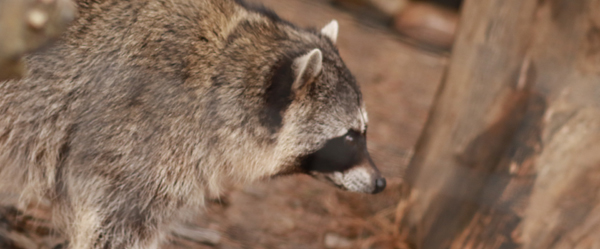- info@wildlife-removal.com
Call us for help in your town
Wildlife Removal Education
Raccoon Prevention Tips
Need raccoon removal in your hometown? We service over 500 USA locations! Click here to hire us in your town and check prices - updated for year 2020.
Raccoon infestation problems can escalate very quickly in homes and result in many forms of damage to structures, raise electricity issues as well as health and hygiene concerns among others. Furthermore, being creatures of habit, once raccoons discover and infiltrate your home, they will keep coming back and even spread news of the conducive habitation with their scents that attract other critters in the neighborhood. Talk about love in sharing!

Most of the problems caused by raccoon infestation in houses are actually preventable, plus many home owners are guilty of inadvertently inviting these nuisance visitors by their own actions or inactions. Raccoons are foraging animals and the singular thing that makes them seek out your yard is food. Once there is a steady supply of food in your yard, they are quick to invite themselves in by any small opening in your structure. In order to deter raccoons from sharing your home with you, you must first and foremost stop feeding them.
The best preventive measures to keep raccoons away from your house are usually centered around removing food sources and blocking all potential entry points in your structure.
- Ensure that garbage cans are sealed tight. A common sign of raccoon visits is an overturned garbage can and scattered trash. Raccoons are very deft in handling loose or broken lids. If your garbage can must be left outside, use lids that lock into place with handles or clamps. Also empty your trash often so the smell does not invite them.
- Do not leave pet food or leftovers outside at night. Feed your pets during the day and don’t leave their food bowls out for the raccoons to find. Always clear up leftover food from any eat-out as well. And clean up spilled bird seed around your bird feeder.
- A big, aggressive dog might help. Read about What Are Raccoons Scared Of?
- Block any potential access point in your house or structure. Raccoons can get in through surprisingly small spaces in the seams along roofs, baseboards, attic vents, and chimneys. You may hire a professional to carry out a thorough inspection of your house and proof it against wildlife entry.
- Remove any tree with overhanging branches near your roof to prevent easy roof access. Trim and reduce any excess vegetation around your house or deck to reduce the amount of cover and hiding places.
- Ensure that your chimney is properly capped at all times
- Animal proof low decks and basement spaces in elevated houses. Do Raccoons Use Tools?
- Some chemical raccoon repellants, toxicants, and fumigants are available in stores. They incorporate natural repellants like coyote urine as their base. Water-sprayer raccoon deterrents are also widely available; these release water bursts in response to a motion detector to scare off raccoons.
- It has been postulated in some quarters that moth balls may keep raccoons out of enclosed spaces in the house.
- If you discover evidence of a nest in your attic or your deck or elsewhere indoors, you can deter them into moving out by placing bright lights, a noisy radio, and ammonia-dipped rags near the nest area.
- Raccoon traps are used in extreme cases and you usually have to check with your local wildlife department before setting any traps. Only humane traps that do not harm the critters are approved for use.
Whatever you do, avoid confrontations with any raccoon discovered on your property, do not attempt to tackle them or physically chase them. A cornered raccoon may defend itself by attacking humans or pets, and may inflict injury or worse, transfer disease-carrying parasites. Female raccoons with young are especially aggressive as they will protect their babies against any threat.
Of particular danger, are raccoons that are active during the day, move erratically, or aren't afraid of humans. These patterns of behavior are common symptoms of the zoonotic brain disease - rabies. If you suspect there is a rabid raccoon on your property, immediately call your local wildlife control.
The most effective way to bar raccoons from gaining access onto your property is to install high fences, which is rarely anybody’s preference for their residential space. In the absence of this, you may call in professional wildlife handlers to inspect and proof your house against raccoon entry; or undertake your house-proofing by yourself by combining the above tips that are applicable to your situation.
Go back to the Raccoon Removal page. Or, you can read about
how to get raccoons out of the attic since that is where they commonly live, or you can read my general
how to get rid of raccoons guide. I do not advocate killing these animals. Read why on my
how to kill a raccoon page. Often the best method is trapping and removal read about
raccoon trapping tips here. Many people ask about
what bait to use for raccoons if catching them in a cage. Or better yet, prevention is often the best approach. I have listed several techniques for
how to keep raccoons away. If you don't know for sure that it is a raccoon, but you have fecal evidence, you might want to look at my
raccoon poop photos. And remember, there is no effective
raccoon repellent. So if you have a problem with these animals, you will have to do the work necessary or hire a professional.


















